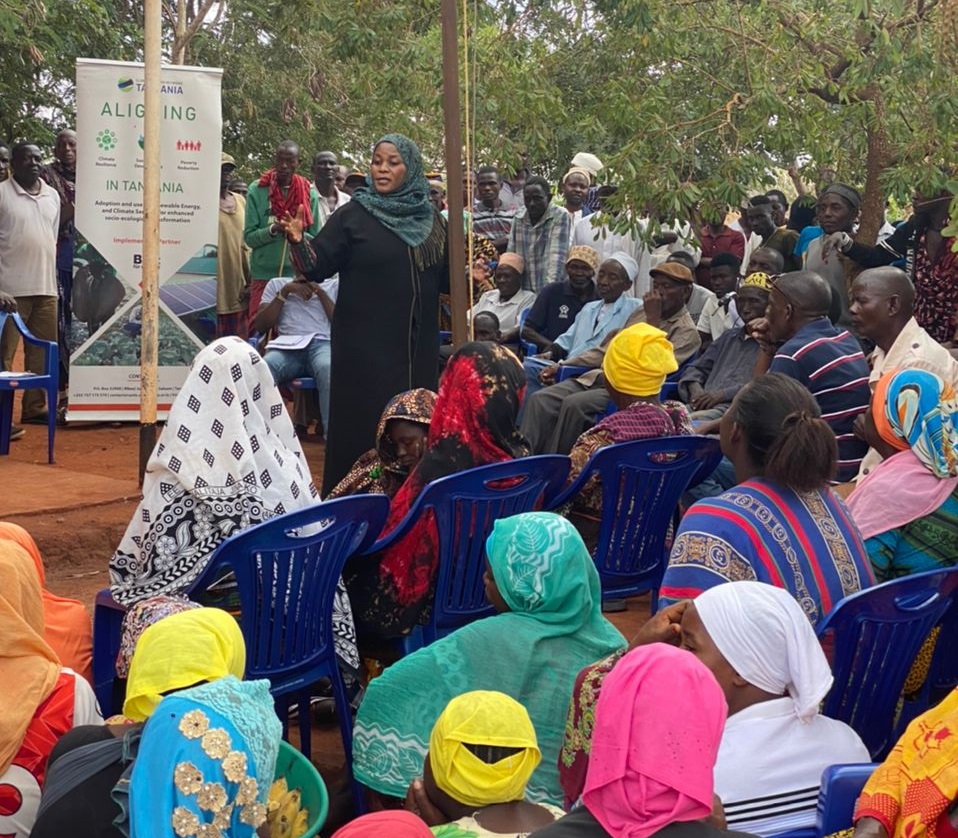
Published: JULY 18, 2022
Climate change has highly impacted the weather dependent socioeconomic activities such as agriculture, pastoralism, and fishing. Changes in rainfall patterns, temperature increase, and wind variations have made it difficult for local communities to make decision on how to undertake their socioeconomic activities. During our visit at Mwangoi Ward in Lushoto, farmers reported that the long rain seasons delayed to start and the rain was not enough for crop growth, many of the crops have been lost on farms with little harvests.
Smallholders need more than weather forecasts to prepare for climate impacts. Timely and downscaled weather forecasts with directives on what to be done in the expected weather has been the community demand. With our SMS-based Climate Service we give the best available knowledge to smallholders on how to react to weather forecasts. Integrating the climate service from Tanzanian Meteorological Authority (TMA) and Indigenous Knowledge, we provide downscaled climate services to farmer, pastoral and fisherfolks communities. In collaboration with extension officers from the Project Districts and Villages, advisories and directives on the expected weather and impacts are communicated to the local community, including; What type of seeds is smart to use this season? Do we have to warn fishers on upcoming storms?
Would the community trust a random message from a stranger? How have we managed to get the contact of thousands of farmers, fishers and pastoralists that want us to text them up-to-date climate information? To build trust, relations and education about the need for using Climate Services, we trained trainers (ToTs) extension officers, local leaders, and experts to spread knowledge to the communities about climate risks and how to adapt by using climate services. In collaboration we designed a workshop and information material to communicate easy and understandable on Climate Services. Just last week we visited villages in Bagamoyo, Chalinze and Lushoto (Tanzania) for a campaign to promote climate service usage for better planning of livelihood activities.
Over 900 farmers and pastoralists came to talk with us about their climate challenges. We started with discussing together what climate challenges they are facing. Next, we collected possible adaptation action. There is a rich local knowledge on adaptation solution. We want to promote and share best-practices. After the communities are sensibilized about climate challenges and adaptation option we pitch our SMS-based climate services. The farmers and pastoralists were excited to learn who they can get up-to-date climate information via SMS: We took our time to address all questions, concern, and ideas. Who does it work? What information will I get? And most important: Who do I sign up for this? What does it cost? The SMS-based Climate Services is free for the smallholder. All they must do to get their phone number registered by their Extension Officers. After the information workshop almost 300 decided in each village to sign up on spot for our SMS-based service. It took some time to register so many interested people in just one day. But the smallholders waited patiently in line and where eager to get register for the SMS-based Climate Service.
